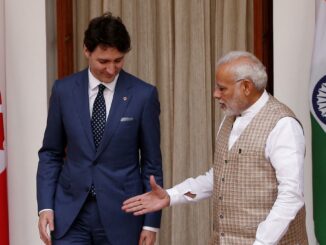The Supreme Court order granting bail to Bharat Rashtra Samithi leader K. Kavitha does more than grant relief to a jailed politician; it brings under focus the ill-motivated tactic of using the judicial process and the power of arrest as a tool to hound political opponents. The charge that the Delhi government’s liquor policy was formulated in exchange for crores of rupees to grant a favourable deal to a certain lobby is quite serious, warranting a thorough investigation and fair prosecution. However, the focus of the Centre and its agencies seems to be entirely on keeping some political figures imprisoned in the run-up to the trial. In oral observations, a Bench of Justices B.R. Gavai and K.V. Viswanathan has questioned the fairness of the investigation, especially because the agency has cited some of those apparently involved as witnesses, while seeking pardon to some arrested suspects so that they could testify as approvers. After a spell during which the courts were reticent to disregard the vehement objections by the prosecution to the grant of bail, the judiciary has now begun to see through the attempt to use the bail-denying features of the Prevention of Money-Laundering Act (PMLA) to keep adversaries in prison for long. The Court had earlier granted bail to Delhi Chief Minister Arvind Kejriwal (still in jail in a CBI case on the same allegations) and Deputy Chief Minister Manish Sisodia.
Ms. Kavitha has been accused of arranging the alleged deal between the Delhi government and a ‘south lobby’. It is notable that the political leaders have all been implicated by witnesses who themselves appear to be involved in the case and accused who have turned approvers. The Bench has questioned the Delhi High Court’s failure to give her the benefit of a proviso to Section 45 of the PMLA, which allows grant of bail to women, merely on the ground that she was educated and not a “vulnerable” woman. The mere fact that the investigation by the CBI and the Enforcement Directorate is over was enough to grant bail. Instead of vehemently objecting to bail, and spending their time filing lengthy replies to a spate of bail petitions in various courts, prosecutors should concentrate on building a water-tight case. They should now focus on opening the trial and concluding it within a reasonable time-frame. The agencies concerned should remember that headlines that cite fabulous sums of money allegedly paid as bribes and thousand page charge sheets can impress only a few. Trial courts would surely prefer concrete evidence and reliable testimony backed by relevant documents.
(The Hindu)





Be the first to comment